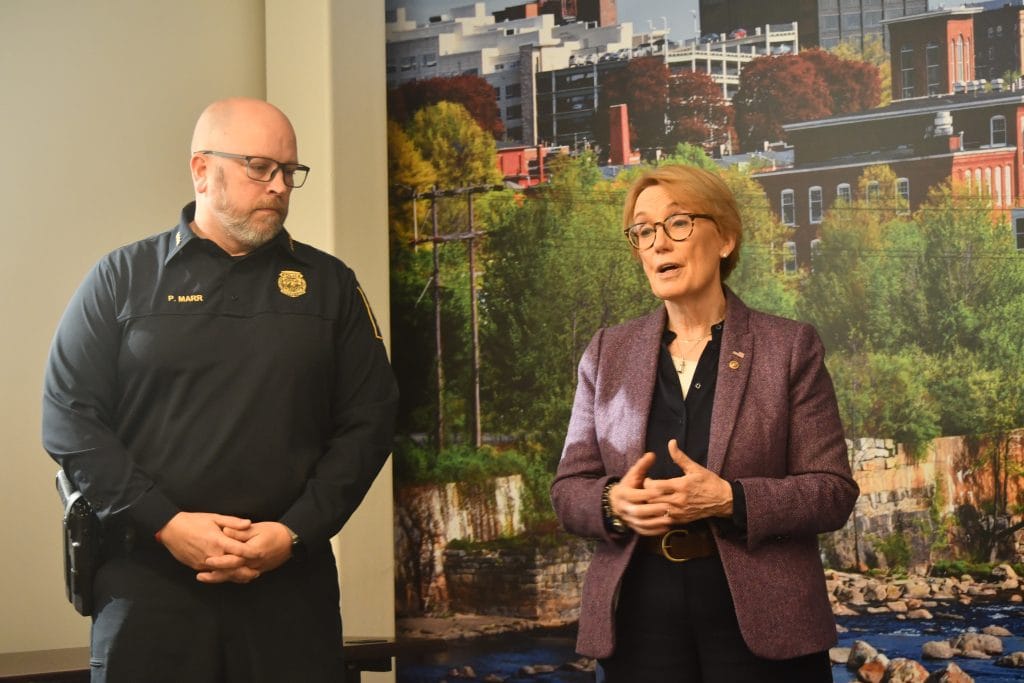Hassan joins police chief for update on fentanyl fighting efforts
U.S. Senator Maggie Hassan (D-NH) and Manchester Police Department Chief Peter Marr joined with several law enforcement officials across New England on Tuesday morning to discuss strategies toward tackling the issue of fentanyl analogue distribution.

MANCHESTER, NH – U.S. Senator Maggie Hassan (D-NH) and Manchester Police Chief Peter Marr joined with several law enforcement officials across New England on Tuesday morning to discuss strategies toward tackling the issue of fentanyl analogue distribution.
Fentanyl is a synthetic opioid and has become the primary factor fueling the country’s ongoing opioid crisis, although 2024 saw year-over-year reductions in opioid related deaths and overdoses in Manchester. Marr said that his data suggests that fentanyl usage has largely remained static compared to recent years, amphetamine-based drugs have been more popular in Manchester, despite the fact that they were once not as common in New England compared to other parts of the country.
Unlike fentanyl itself, several derivations of fentanyl known as fentanyl analogues are not currently classified as Schedule I Controlled Substances under federal law, leading them to become alternatives for drug dealers.
Hassan shared that she is a co-sponsor on a bill in Congress expanding fentanyl scheduling to address this issue, adding that the meeting also discussed new technologies and strategies being used to address illegal fentanyl sales, although Marr could not reveal details due to fear that drug dealers may create countermeasures if they come to realize these new methods.
Additionally, Hassan and Marr said collaborative efforts between local, state and federal law enforcement agencies have been crucial in addressing illegal fentanyl sales in New Hampshire, as drug cartels have been nimble in adjusting to law enforcement efforts.
The gathered law enforcement officers also communicated regarding what to expect in terms of grant funding given President Trump’s statements and actions making grant funding much less likely for local law enforcement agencies.
Hassan explained that she has attempted to keep various local government agencies such as the Manchester Police Department and New Hampshire’s non-profit organizations appraised of the shifting narrative coming from Washington on what to expect in the future.

